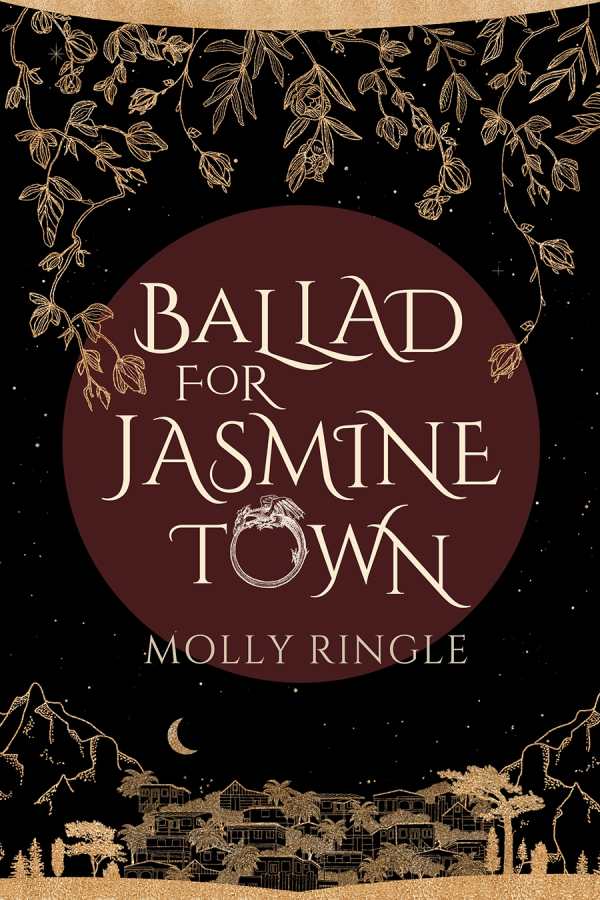Ballad for Jasmine Town
Eidolonia Series
In Molly Ringle’s intoxicating fantasy novel Ballad for Jasmine Town, humans and fae band together to save their mystical island.
In Miryoku, known as Jasmine Town, Rafi feels like two halves of a whole: half human and half fae, he’s labeled a “wanderer,” and neither the fae nor humans will claim him. With his fae abilities, he manipulates his gender. Then he meets Roxana, a witch, who has romantic partners of all genders. The story alternates between each of their points of view, helping to flesh out both the human and fae sides of their island, Eidolonia.
The story’s action is parallel: Rafi and Roxana’s complicated romance is juxtaposed to the increasing threats leveled against their town from Rafi’s earth fae family, coupled with rising political tensions on Eidolonia. When the political issues come to a head with the election of a humanist, who would imprison or otherwise punish wanderers, the effect on Rafi and Roxana’s relationship is fraught. This catapults the story toward its climax, in which the fates of Rafi and Roxana, and of relationships between humans and fae at large, may be determined.
Queerness is no obstacle in this landscape, in which images of jasmine act as through line. Even when Roxana moves away, the sight or smell of jasmine transports her back to Miryoku and Rafi. At the end of the story, when the physical landscape of Miryoku has been altered, the jasmine vines persist. Such imagery grounds the story, giving its more imaginative elements a tangible center.
Set in a fantastical world populated by fae and human beings, Ballad for Jasmine Town is a buoyant novel in which people fight for what and how they love.
Reviewed by
Rachel Telljohn
Disclosure: This article is not an endorsement, but a review. The publisher of this book provided free copies of the book to have their book reviewed by a professional reviewer. No fee was paid by the publisher for this review. Foreword Reviews only recommends books that we love. Foreword Magazine, Inc. is disclosing this in accordance with the Federal Trade Commission’s 16 CFR, Part 255.


